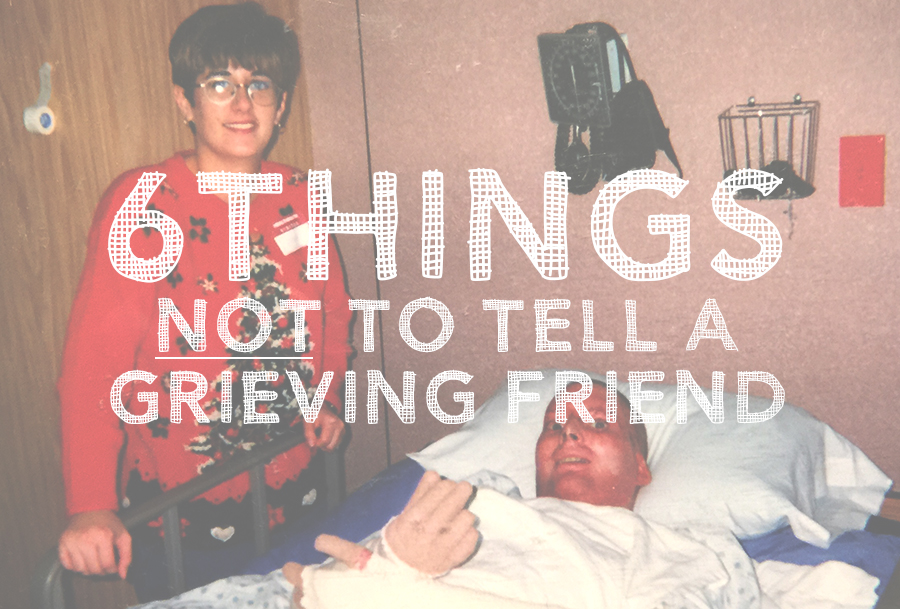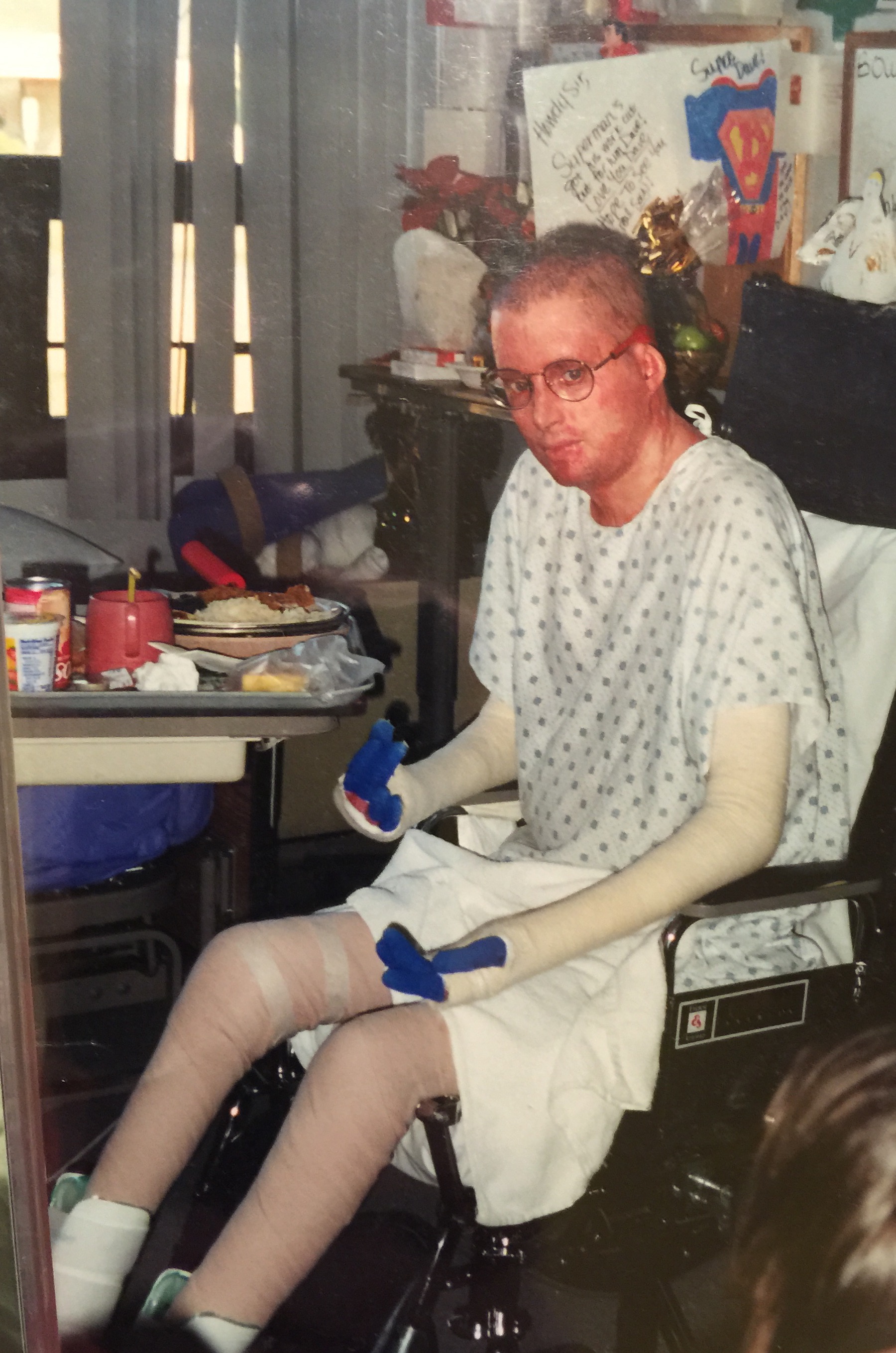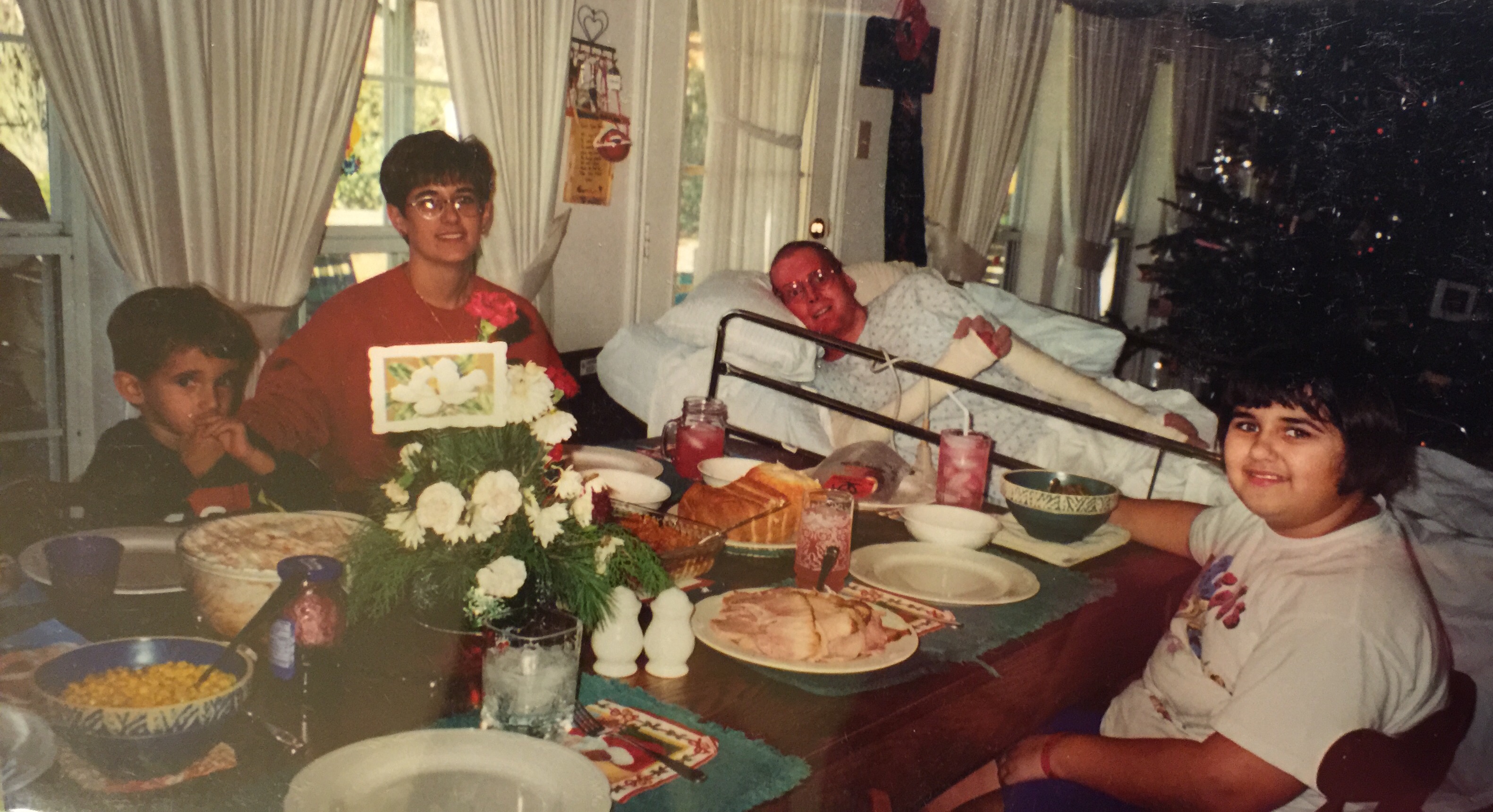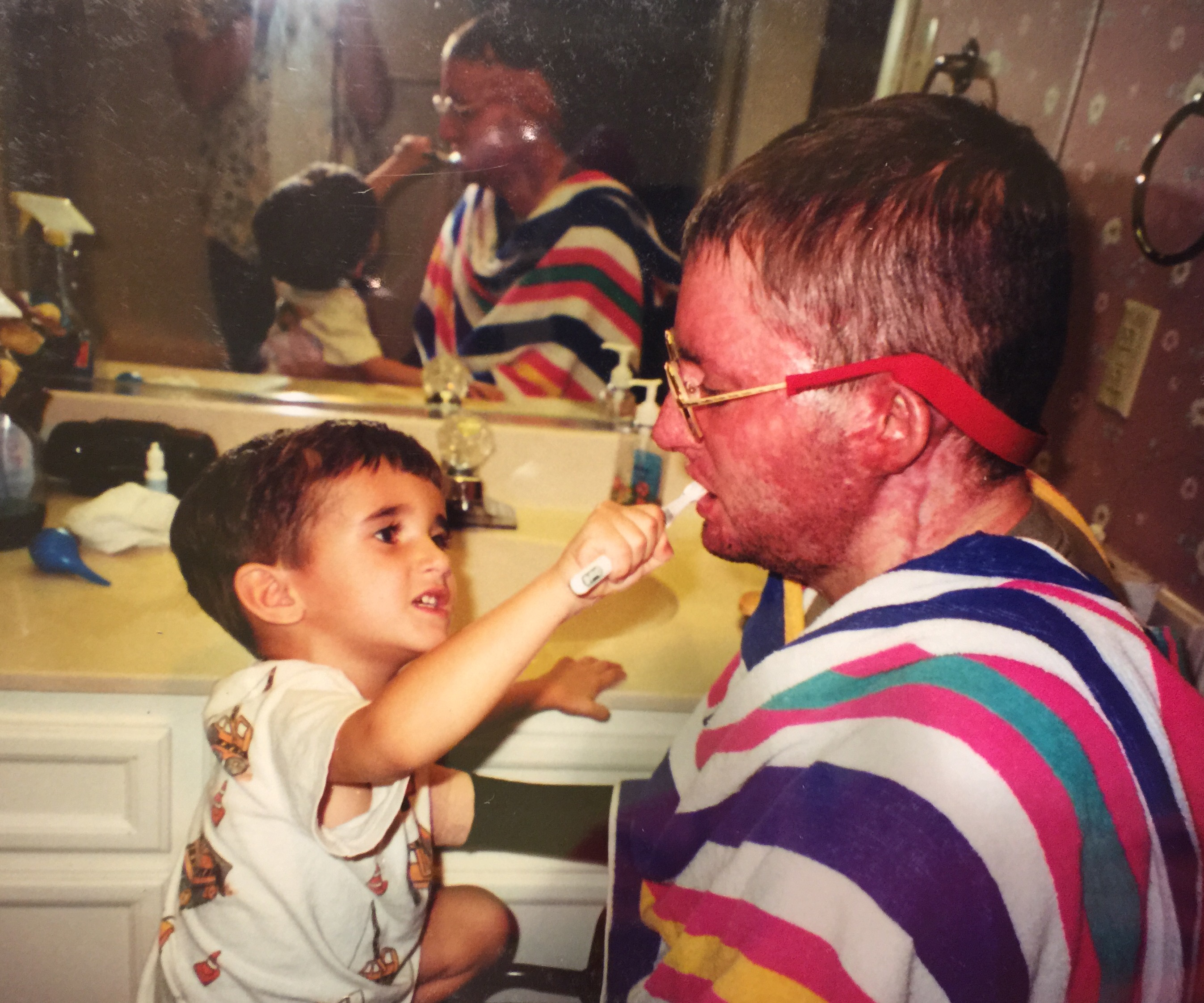 Sometimes there’s a little bit of anxiety that rises to the surface of our emotions when we are faced with being in the presence of a friend who is grieving. Because of that, we often times feel like we have no idea what we should say or do. So we find ourselves babbling on and on and end up saying something that actually hurts our friend, when our best intentions were to bring them comfort.
Sometimes there’s a little bit of anxiety that rises to the surface of our emotions when we are faced with being in the presence of a friend who is grieving. Because of that, we often times feel like we have no idea what we should say or do. So we find ourselves babbling on and on and end up saying something that actually hurts our friend, when our best intentions were to bring them comfort.
Let me be sure to say that the following list is from our own experience in dealing with the grief surrounding David’s severe burn injury. Over the last 15 years, we have had to grieve the loss of David’s physical body, the loss of function of his hands or other body parts, the loss of David’s job, the loss of our sense of safety and security, the loss of feeling protected, the list goes on. I guess I’m saying that grief comes in many shapes and sizes, so what I have to share today might hit home in your life as well.
1).” God must have something amazing planned for you.”
While this might very well be the case, in times of tragedy and loss, this statement tended to make me want to blame God for what had happened, instead of encouraging me to turn to God for comfort. If this was part of God’s plan, then it’s all His fault that I’m feeling this way. I believe we live in a broken world, full of sin and sinful people and that some things in life are the result of that brokenness, not necessarily because God made them happen. I truly believe the God is with us all the time, especially when tragedy strikes. But I do not believe that God thought on Friday, August 20, 1999, “Let’s see, today’s the day that I’m going to have tragedy strike the Bowers’ family. I’m going to make David experience a living hell, because I have an amazing plan for him.” No. Instead, I firmly believe that because of sin, bad things sometimes happen and that God is with us during those times and can even use that tragedy to bring Him glory if we turn to Him for help and comfort instead of blaming Him.
2). “Everything’s going to be OK.”
“OK” in times of distress means life will get back to what we knew before tragedy stuck. Life after a tragic event is never ever the same. We are touched in ways and we are never the same again. That’s not to say everything is doom and gloom forever, it’s just that our hearts and souls have been affected in such a deep way that we are forever changed. While we would eventually find a new “normal” for ourselves, it would never be the way it was before. David would eventually find ways to adjust to his new body, but his body would never return to the way it was. The “OK” we would eventually get wasn’t the “OK” we wanted at the time, and it sometimes felt like friends didn’t understand that.
3). “I know what you’re going through.”
Really?!? Most people have never experienced the same exact circumstances in life. While they might have some experience with dealing with grief, I highly doubt the situations were the same. In just our immediate family, we had different feelings and emotions that we were struggling with even though we were all grieving David’s accident. Our experiences were completely different. I understand we all want to offer empathy, but maybe it would be better to say something like, “I’ve been in a similar situation before and if you ever need to talk, I’m here.” Even though I had the amazing support of our family and friends during our recovery, it wasn’t until we attended our first conference for burn survivors that I truly felt like anyone knew what I was really going through, because they indeed knew what it was like to deal with a burn injury 24:7.
4). “It will get better with time.”
Again, this statement might be true, but in the thick of things, everything is so intense. It’s so much better to offer comfort and hope now and not try to bank on something down the road. We’re usually struggling to just make it through that particular day, we can’t even think about what life might be like in a week, a month or even a year. Instead, maybe remind them to take one day at a time.
5). “God would never give you more than you can handle.”
I can’t even begin to tell you how many times we’ve been told this by well-meaning friends and family. When I heard this it would only make me want to blame God for all that had happened. Blaming God doesn’t ever bring us the comfort and peace we need to get on living again. Instead, we need to offer ways to encourage people to run to God for strength because when we are weak, He is strong. We can’t do anything without Him.
6). “Let me know if there’s anything I can do.”
Please don’t ever say this to a person who is in the midst of tragedy and dealing with tremendous grief. They are already dealing with so much and this statement only puts the person in a position to have to ask for help. Our human pride usually is a huge hurdle to jump over and it’s hard for us to ask someone for help. Instead, it might be more helpful to take action and not just offer mere words. The story in the bible about the Good Samaritan helps put this concept into practice. The Samaritan actually stopped and DID something for the person in need. He took ACTION and gave compassion. Offer to do something specifically for the grieving person, like bringing a meal on a certain date, or babysitting their kids, make plans to stop by for a visit, mow their grass, etc. Don’t assume that the person will ever reach out to ask for assistance. That’s hard to do on a good day, let alone the darkest time in your life.
These are just a few things that David and I thought might be helpful when you just don’t know what to say to a friend that’s hurting. And remember, you don’t have to say anything at all. Sometimes a heartfelt hug is more powerful than any words that you could ever say.





Perfectly said!
Thanks, Bernadette!